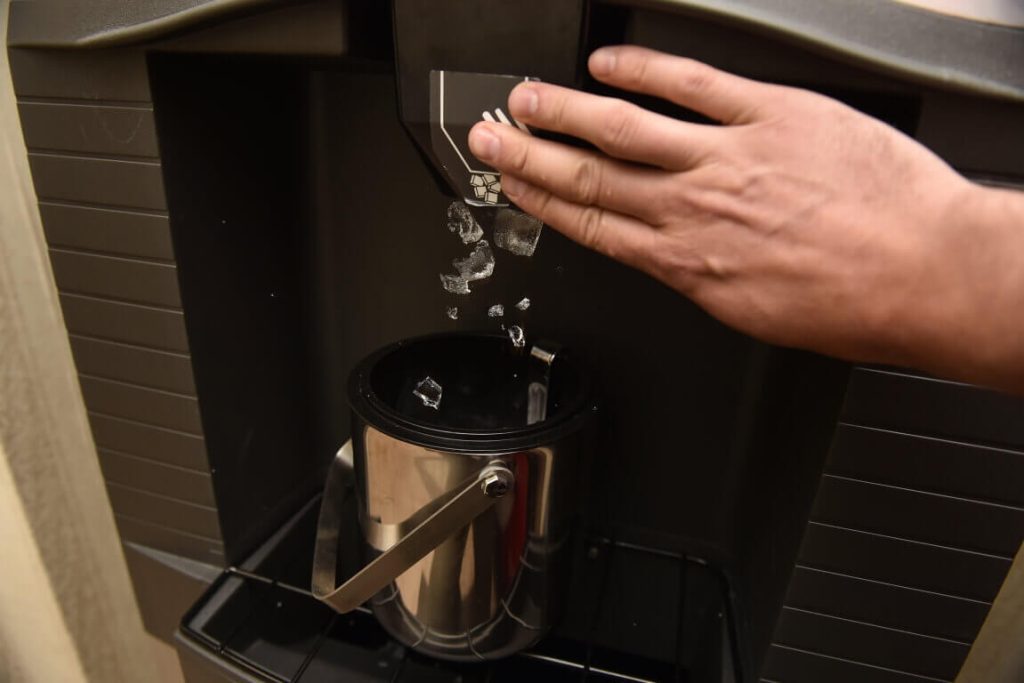Under normal circumstances, your ice maker should have the capacity to make around eight cubes every two to three hours. This is considered standard for most ice makers in most commercial fridges. At Express Appliance Repair Ottawa, we can be there to help if this proves to not be the case.
What’s Making My Ice Maker Slow?
There are two problems with a slow ice maker right off the bat. In the first place, the issue could mean something deeper is wrong with your fridge. This is why we strongly encourage anyone whose ice maker is too slow to take steps to remedy the situation straight away. While the issue may in fact be simple, you don’t want to assume that. A small problem with this major appliance can turn into a serious problem in hardly any time at all.
In the second place, diagnosing slow ice maker causes can be tricky. This is something you can certainly try to do on your own, but the issue may ultimately be something that is best left to the professionals. The problem is that there several different reasons why your ice maker is slow. When we are talking about the fridge, we are after all talking about an extremely complicated machine. We are talking about something with many, many different components.
So with all of this in mind, we can dive into the subject of slow ice makers with a better understanding of what’s going on.
Reasons Why Your Ice Maker Might Be Slow
Keeping in mind that your ice maker should be producing roughly 8 cubes per 2-3 hour period, here are some things to keep in mind, if production falls below that point:
- The ice bucket: Keep in mind that depending on your fridge model, it can take anywhere from one days to two for the ice bucket to be completely filled.
- Max ice feature: Do you have the Max Ice feature with your fridge? If so, then you can equip this feature to speed up ice cube production for approximately twenty-four hours.
- Check for errors: One of the first things you should do is make certain there isn’t a service message, icon, or some other type of error code being displayed.
- Did the power go out? This may sound a little silly, but make sure you didn’t lose power for any meaningful length of time in the past twenty-four hours. This can disrupt a number of things in your life, and that applies to your refrigerator, as well.
- Check your temperature: One major red flag to look for involves the temperature of your freezer. Check the temperature. Anything higher than five degrees should be cause for concern. If your freezer is in the double digits, then you need to call in the professionals as soon as possible.
- Check the condenser: Few elements within your fridge endure as much as the condenser. To be sure, this is one part of your fridge that is working almost without pause. To that end, your condenser should be cleaned on a semi-regular basis. Cleaning your condenser doesn’t take very long. This is particularly true if you can keep up a regular routine with it. Our advice is to have the condenser cleaned every three to six months.
- Check the ice bucket: It is entirely within the realm of possibility that your ice bucket has not been installed correctly. This is something you can try to determine on your own, but you can also certainly bring it up with any Ottawa appliance repair professional from Express Appliance Repair.
- Check the fill tube: The fill tube for your fridge/freezer is highly delicate. It really doesn’t take very much to obstruct this tube at all. Check the tube for anything that might be blocking things, and remove any items that strike you as suspicious.
At this point, you should be able to figure out the most likely problem. There are several things you can naturally do to deal with this, and we would encourage you to try as many solutions as possible. However, if you still can’t seem to get to the heart of the problem, please don’t be afraid to give us a call.
Conclusion
Your refrigerator is one of the hardest working appliances in your home. To that end, it just makes sense to want to do absolutely everything possible to ensure it is being cared for. Your ice maker doesn’t get too much use until the summertime, but that still doesn’t mean you shouldn’t take slow ice makers seriously. Don’t wait for the warmest months of the year to deal with a situation such as this.
And don’t forget that we are on hand to deal with any problems you may be experiencing. From a slow ice maker, to a fridge that isn’t cooling quite as well as it should be, we can help.
